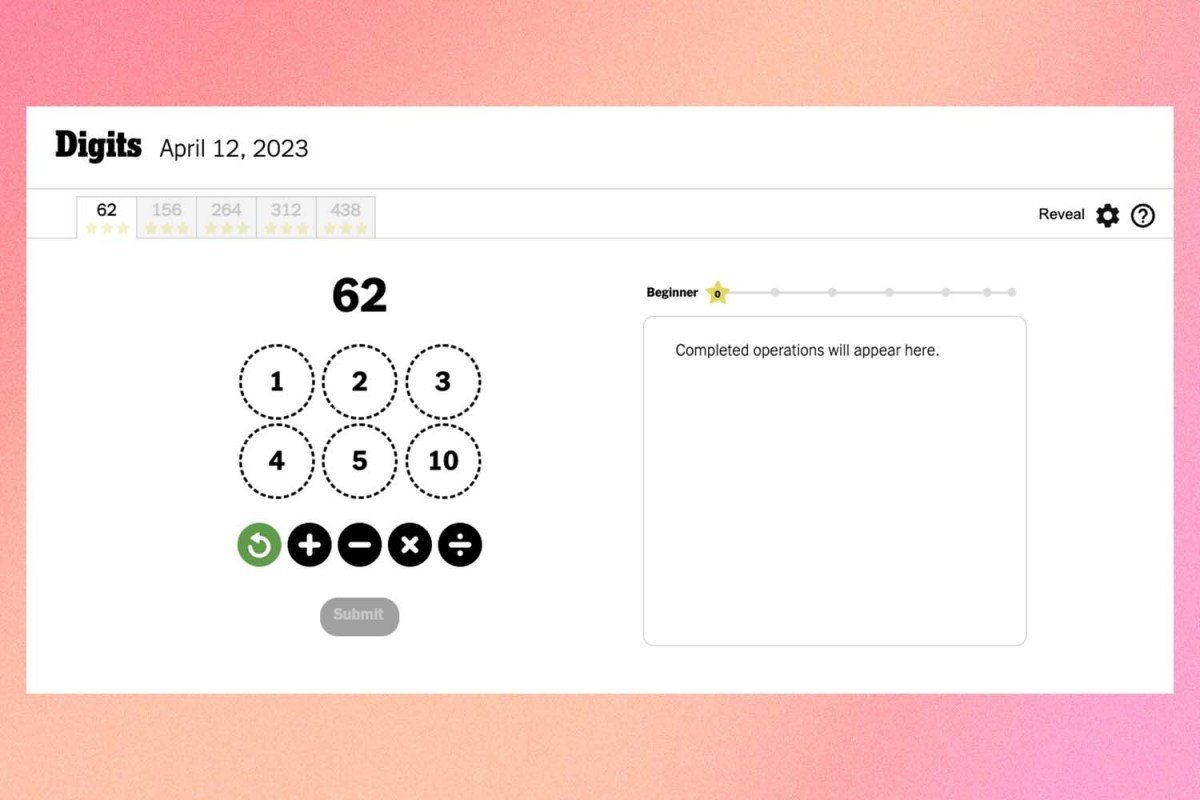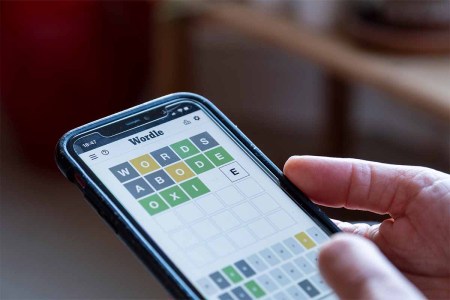If Wordle is getting a little too monotonous or numbers are more your game, The New York Times has a new daily puzzler for you. It’s called Digits, and for now, it’s free to use.
As a former eighth-grade “mathlete” who eventually succumbed to calculus, Digits is extremely appealing to me, as it involves simpler equations. You start with six numbers and a target number goal (the Times example puzzle hilariously uses 69 as the target). From there, you can add, subtract, multiply or divide the six numbers to reach your target — and you don’t have to use all the numbers given.
Wordle Got a New Editor and Changed Its Rules
The hit word game just landed a dedicated editor, expanded its answer list and altered the rules on what you can and cannot guessOperations that produce fractions or negative numbers will not be accepted. But you can, for example, multiply two numbers together and use that new number to solve the puzzle. (Spoiler ahead: for today’s 62, I multiplied 5 x 10 to get 50 and 4 x 2 to get 8, then added 3 and 1 to get the total.) Each day it appears you’ll actually get five target numbers (today it ranges from 62 to 438). And you can still get credit for getting close to the number without reaching it.
One temporary issue: Digits is apparently a little buggy, according to The Verge, with some refresh issues on Chrome and on the phone. That said, the game is in beta, and those issues appear to be fixed (I had no issue with Chrome on an iPad).
According to a Times blog post, Digits was based on two European television game shows: Des Chiffres et des Lettres, a French program about numeracy and vocabulary that began in 1965, and the English show Countdown, which started in 1982.
You might want to try Digits now while it’s free for non-subscribers — and because the game might not last. Per the Times: “Based on the results of the [beta] test, the greenlight committee decides whether to move it into the development phase, where the game is coded and the designs are finalized. If the response to the game isn’t what the team is hoping for, the committee must decide whether further tuning would be helpful or if the development of the game should end.”
Thanks for reading InsideHook. Sign up for our daily newsletter and be in the know.



















